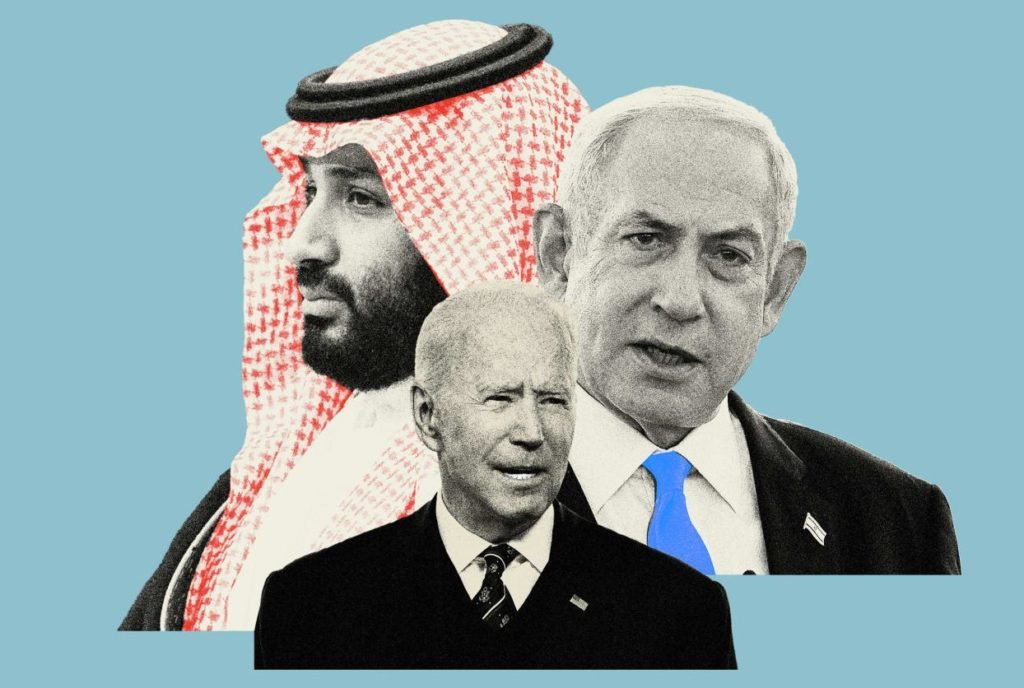Will Saudi Arabia accept Israel after ceasefire in Gaza? In a recent interview on Late Night with Seth Meyers, President Joe Biden disclosed a significant diplomatic development regarding the conflict in Gaza.
He revealed that an agreement in principle had been reached with Israel to observe a ceasefire during the holy month of Ramadan.
This ceasefire, Biden explained, was intended to create a conducive environment for negotiations, particularly focusing on the release of hostages.
During the interview, Biden highlighted the broader implications of this agreement, noting that it could potentially pave the way for Arab nations such as Saudi Arabia, Jordan, and Egypt to recognize Israel as a state.
Also read: Joe Biden mixes Macron with dead French president Mitterrand
“First of all the hostages being held must be released. Ramadan’s coming up and there’s been an agreement by the Israelis that they would not engage in activities during Ramadan to give us time to get all the hostages out. It gives us time to begin to move in directions that a lot of Arab countries are prepared to move in for example Saudi Arabia is ready to recognise Israel, Jordan is, and Egypt and six other countries,” Biden said.
Will Saudi Arabia accept Israel after ceasefire in Gaza? watch the video:
He underscored his administration’s commitment to fostering diplomatic ties between Israel and its Arab neighbors, despite facing criticism for his unwavering support for the Israeli state.
Meanwhile, the health ministry in Gaza issued a grim report detailing the toll of the conflict. According to the report, the Israeli bombardment has resulted in a staggering number of casualties, with nearly 30,000 individuals wounded since the conflict began in October.
The latest figures include 96 deaths within the past 24 hours alone, highlighting the urgent need for a cessation of hostilities and a concerted effort to address the humanitarian crisis unfolding in the region.
The potential recognition of Israel by Saudi Arabia marks a significant shift in the diplomatic landscape of the Middle East.
It signals a willingness among certain Arab nations to engage in dialogue and potentially normalize relations with Israel, a development that could have far-reaching implications for regional stability and peace efforts.
